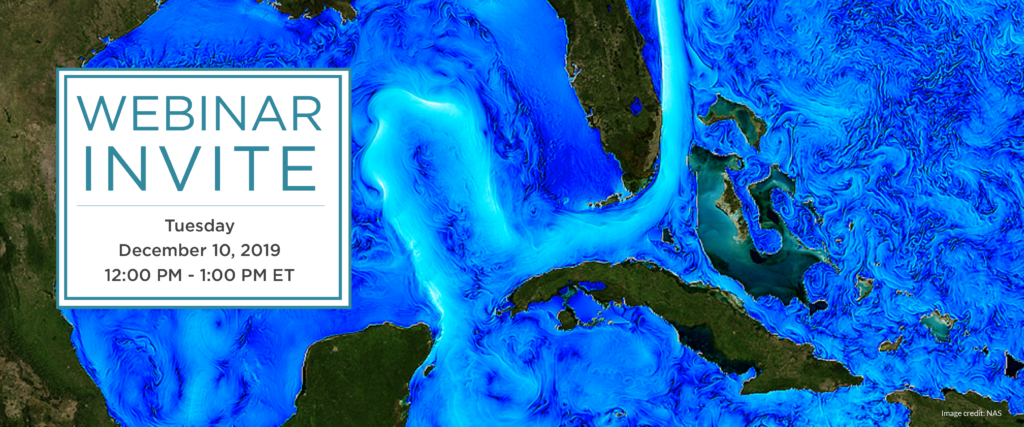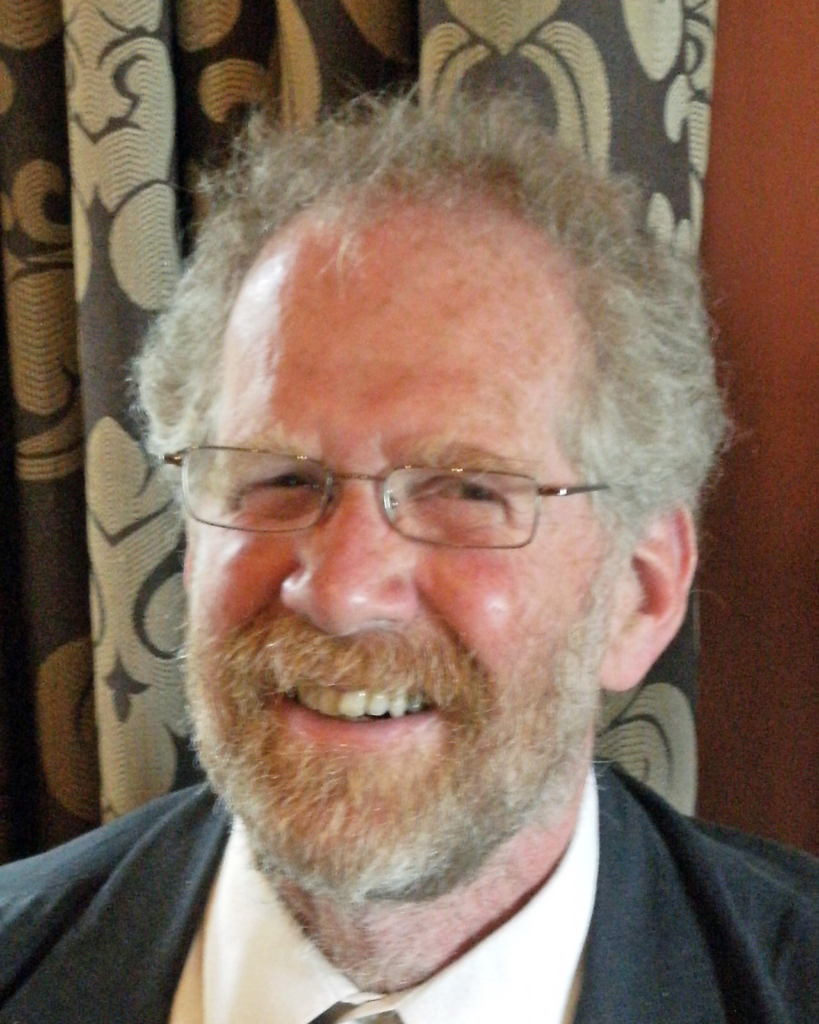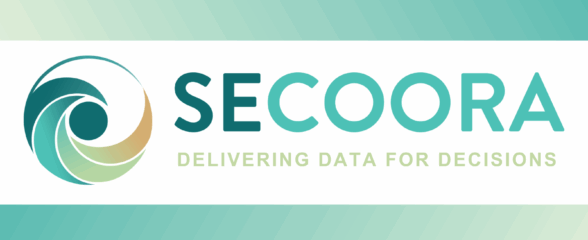
Join SECOORA for a webinar, December 10 at 12 PM ET, with Dr. Peter Hamilton from North Carolina State University.
Dr. Hamilton will discuss what has been learned from recent major observational studies in the Gulf of Mexico that involve satellite remote sensing, in-situ moorings and both deep and surface drifters.
Major results include explanations of circulation processes that lead to separations of Loop Current eddies, and the radiation of deep energetic flows into the northwestern Gulf of Mexico.
Date: December 10, 2019
Time: 12:00 – 1:00 PM ET
Speaker: Peter Hamilton; Marine, Earth, and Atmospheric Sciences, North Carolina State University
Click here to reserve your spot!
Abstract
The Loop Current, a part of the western boundary current (i.e. the Gulf Stream) system of the Atlantic Ocean, is of major importance to the circulation of the Gulf of Mexico. The Loop Current enters the Gulf flowing north through the Yucatan Channel, and exits through the Florida Straits between Key West and Cuba, in a clockwise loop.
Loop Current intrusions into the eastern Gulf sometimes may extend as far north as the Alabama/Mississippi continental slope, but also can retreat to a position where the flow is a direct path between the Yucatan Channel and the Florida Straits. At between 4- and 18-month intervals, an extended Loop Current irregularly sheds large clockwise rotating eddies into the western basin, strongly influencing flows there as well as on the Louisiana/Texas and Mexican continental slopes.
This webinar will discuss what has been learned from recent major observational studies that involve satellite remote sensing, in-situ moorings (measuring currents, temperature and salinity), and both deep and surface drifters. Major results include explanations of circulation processes that lead to separations of Loop Current eddies, and the radiation of deep energetic flows into the northwestern Gulf of Mexico.
Click here to reserve your spot!
About the Presenter

Marine, Earth, and Atmospheric Sciences North Carolina State University
After undergraduate and graduate degrees from the Universities of Sussex and Liverpool in the UK, Dr Hamilton took a post-doctoral position at the University of Washington in Seattle, and from thence, in 1978, began a 40-year career as a physical oceanographer with Science Applications International Corporation (SAIC) and its successor LEIDOS corporation at their Raleigh, NC offices. After retiring, he became an Adjunct Professor in the Marine, Earth and Atmospheric Sciences department at North Carolina State University.
While at SAIC, Dr. Hamilton was responsible for data synthesis and interpretation of large numbers of current meter and other oceanographic and meteorological time series observations from many multi-year programs, funded principally by MMS/BOEM. Observational analyses were chiefly for the Gulf of Mexico, but, were also applied to data from many coastal regions on both coasts of the US; including evaluations and modeling of dumpsites and outfalls.
Dr. Hamilton served as a Principal Investigator (PI) for three major deepwater studies in the east, central and northwest Gulf of Mexico, and has recently finished being a PI and Program Manager (PM) for major observational and modeling studies of the Loop Current, and the PM for a study of the deep Gulf circulation using Lagrangian (RAFOS and APEX) floats.
Dr. Hamilton has participated in a number of studies involving the comparison of observations with the output from numerical circulation models. Dr. Hamilton has published regularly on the results of all these studies, and has participated in a number of committees, including for SECOORA, and EPA for Long Island Sound and New York harbor.
Related news

Plankton Perfect: Using Imagery to Document Microscopic Marine Life
Dr. Enrique Montes is working to understand how plankton respond to changes in the ocean by capturing high resolution imagery with advanced technology. This work is funded by the Marine Biodiversity Observation Network (MBON) to use novel techniques like the Continuous Particle Imaging and Classification System (CPICS).

SECOORA Community Spotlight: Craig Harris
When Craig Harris signed on as the Emergency Management and Resiliency Coordinator for the city of Wilmington, North Carolina, he brought with him knowledge of water level sensors. SECOORA worked with Craig to install a water level sensor at the Love Grove Bridge in Wilmington, a site prone to flooding.

SECOORA Funding Opportunity Announcement: Letters of Intent Solicitation
SECOORA will submit a coordinated regional proposal in response to the anticipated FY 2026 Implementation of the U.S. Integrated Ocean Observing System (IOOS) funding opportunity. Letters of Intent to be considered for inclusion in SECOORA’s full proposal are due September 9, 2025.